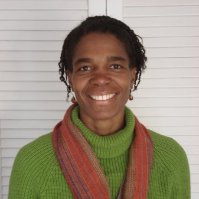|
When the Toledo-Lucas Sustainability Commission wanted to bring its newly adopted “Going Beyond Green” (GBG) sustainability plan to life, the Toledo Community Foundation (TCF) knew just the place for a pilot. TCF connected the sustainability commission to the Old West End Neighborhood Initiative (OWENI), a group of resident leaders representing the Old West End, a neighborhood once home to the most well-to-do residents of Toledo whose collection of 19th century Victorian and Edwardian homes would eventually earn parts of the area a spot on the National Register of Historic Places. But the construction in the 1960s of an interstate highway, as well as considerable disinvestment and economic hardship, took a steep toll on the working-class and predominantly African American residents of the Old West End.
The Going Beyond Green sustainability plan was completed in 2014 at a moment of heightened energy around redevelopment of a former manufacturing site adjacent to the Old West End. OWENI emerged to help bring the neighborhood’s voice to the table and position residents to benefit from the redevelopment as it unfolds. The project was awarded a grant through the Partners for Places matching grant program, a successful matching grant program that creates opportunities for cities and counties in the United States and Canada to improve communities by building partnerships between local government sustainability offices and place-based foundations. Through these projects, Partners for Places fosters long-term relationships that make urban areas more prosperous, livable, and vibrant. The grant program was launched in 2012 by The Funders’ Network for Smart Growth and Livable Communities and the Urban Sustainability Directors Network (USDN). Toledo was awarded a $25,000 Partners for Places grant, which was matched by an additional $25,000 from the Toledo Community Foundation for a total of $50,000 that enabled OWENI, in close partnership with the Toledo Arts Commission to engage with the Sustainability Commission and other partners. For example, AmeriCorps provided staffing support.) |
The Arts Commission’s focus on placemaking aligned directly with OWENI’s vision to enhance the “sense of place” in the Old West End neighborhood. Their ability to convene diverse partners wove a sustainability orientation into fields such as community design, landscape architecture, arts and culture, health and wellness, and transportation. They also facilitated exploration, with the community, of approaches to implementing sustainability in the neighborhood. Christine Billau Dziad, a program officer with the Toledo Community Foundation said that engagement provided key insights. “This project enabled us to engage residents, rather than just helicopter in with skills and tools,” she said. These mutually beneficial relationships have led to authentic implementation partnerships, as well as an understanding of how to activate sustainability with partners in other communities, notes Melissa Greene Hopfer of the Toledo-Lucas Sustainability Commission. “One of the most valuable things we got from this project was the experience of what it means to develop a plan with and not for a neighborhood,” said Greene Hopfer. Alongside collaborative learning, the project provided a platform for requisite action, which resulted in a range of projects – walkable and bikeable streets, reuse plan charettes, a pollinator plan on a high traffic corner – with complementary placemaking, neighborhood beautification, nature habitat, and employment outcomes. These projects were critical to the success of the project, said Billau Dziad. “From the residents’ perspective, projects can often feel like all talk and no action,” she said. “The GBG project helped us to have an act.” About the author:
Since 1990, Danyelle O’Hara has worked with a range of organizations in the United States and internationally to help build capacity in issues related to community economic development, natural resources management, and community change. In West and Central Africa, Danyelle worked with Catholic Relief Services and the World Wildlife Fund and in the U.S., she has worked as staff to the Center for Community Self-Help and The Conservation Fund, and with numerous organizations as a consultant. Danyelle has a Bachelor’s degree in anthropology and a Master’s in international development education, both from Stanford University, and extensive experience in program development and design, program management, and evaluation.
About Partners for Places: A collaborative matching grant program, Partners for Places creates opportunities for cities and counties in the United States and Canada to improve communities by building partnerships between local government sustainability offices and place-based foundations. Partners for Places is led by TFN and our partners at the Urban Sustainability Directors Network. National funders invest in local projects to promote a healthy environment, a strong economy, and well-being of all residents. Through these projects, Partners for Places fosters long-term relationships that make our urban areas more prosperous, livable, and vibrant. To date, Partners for Places has awarded more than $5 million across North America in this successful matching grant program, leading to more than $10 million in investments.
|

 OWENI’s commitment to revitalizing and improving the quality of life in the neighborhood, efforts that included a house-painting program for senior citizens and those with disabilities, made the Old West End an ideal laboratory for neighborhood-level, resident-led action.
OWENI’s commitment to revitalizing and improving the quality of life in the neighborhood, efforts that included a house-painting program for senior citizens and those with disabilities, made the Old West End an ideal laboratory for neighborhood-level, resident-led action. Danyelle O’Hara, Consultant for the Funders’ Network
Danyelle O’Hara, Consultant for the Funders’ Network